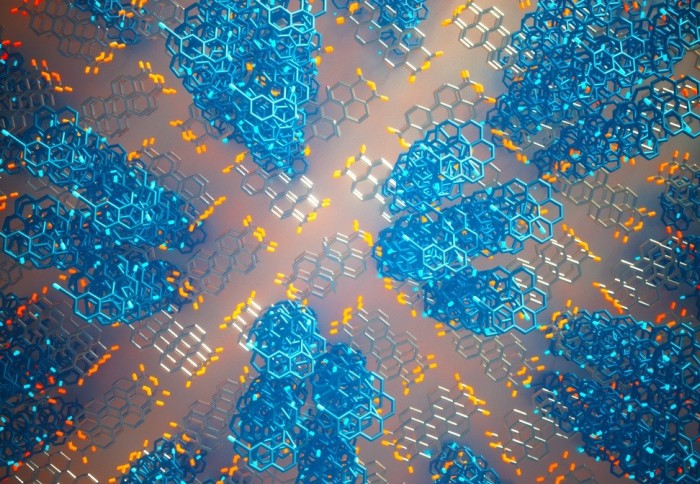Controlling spin and Alzheimer’s biological pathway: News from the College

Here’s a batch of fresh news and announcements from across Imperial.
From materials research that could help with the development of low-power next-generation technologies, to the discovery of a biological pathway that may explain the underlying mechanisms of Alzheimer’s disease, here is some quick-read news from across the College.
Controlling spin
 Sustainable and efficient technologies rely on the precise control of a fundamental property of charge carriers and light waves called spin. Currently, controlling spin is critical in computer memory and 3D displays, but future opportunities include quantum computing, high-precision sensing, and super-secure authentication devices.
Sustainable and efficient technologies rely on the precise control of a fundamental property of charge carriers and light waves called spin. Currently, controlling spin is critical in computer memory and 3D displays, but future opportunities include quantum computing, high-precision sensing, and super-secure authentication devices.
Established strategies to control spin rely on materials and approaches that have serious shortcomings: they’re expensive, complicated, energy-intensive and can only operate at ultracold temperatures. A team in the Departments of Materials and Chemistry are working on a new strategy, based on a property known as chirality. Chiral objects exist as a pair of non-superimposable mirror images, like your left and right hand. Depending on their molecular chirality, carbon-based organic semiconductors can absorb and emit highly twisted light, as well as transporting highly spin-polarised charge carriers.
The spin-controlling properties of these chiral materials is influenced by their chemical structure, how they arrange in the solid state, and how the resultant molecular assemblies are oriented with respect to device-relevant interfaces. The Imperial team have developed a simple strategy to control the orientation of these chiral molecules in thin films, a critical step in the realisation of low-power, sustainable next-generation technologies.
Read the full paper in Nature Chemistry.
Sustainable food futures

The food system’s negative impact on nature and climate has created pressure for a transition towards higher sustainability. However, the finance sector cannot deliver on sustainable food, climate and nature goals alone, and policy support is needed, according to a new report.
The research, for NatureFinance, shows a policy-led scenario delivers greater upsides to food markets and nature, with three million more people able to afford basic nutrition and biodiversity restored to 1995 levels by 2030. A scenario driven by financial risk reaches 1995 levels only in the 2040s and reduces carbon emissions by only 42% by 2050, compared to 58% for the policy-facilitated scenario.
Dr Alexandre Koberle, from Imperial's Grantham Institute for Climate Change and Environment, carried out one of the studies into Brazil independently through Imperial Consultants. He said: “While both transitions can reduce emissions and reverse the degradation of nature, the policy-driven approach leads to results that are cheaper, faster and with job and income maintenance.”
Read the full reports on the NatureFinance website.
Alzheimer’s biological pathway

Imperial-led research has uncovered a new biological pathway that may explain the underlying mechanisms of Alzheimer’s disease, offering targets for future drug discovery.
The study, published in Proceedings of the National Academy of Sciences (PNAS), analysed blood samples from 2600 people to look for connections between genes known to be linked to the disease and small molecules in the blood that are involved in chemical reactions within our cells.
The research has identified a link between ABCA7, a known Alzheimer’s risk gene, and altered levels of a molecule known as lactosylceramide in the blood.
Professor Paul Elliott, Group Leader at Imperial’s UK Dementia Research Institute and leader of the study, said: “The number of people affected by Alzheimer’s disease is growing as the population ages, but unfortunately, there are currently very limited treatment options. Our study is an important step closer to understanding the underlying mechanisms of Alzheimer’s, which could aid in the development of new drugs to treat the condition.”
Read more about the study on the UKDRI website. Want to be kept up to date on news at Imperial? Sign up for our free quick-read daily e-newsletter, Imperial Today.
Want to be kept up to date on news at Imperial? Sign up for our free quick-read daily e-newsletter, Imperial Today.
Article text (excluding photos or graphics) © Imperial College London.
Photos and graphics subject to third party copyright used with permission or © Imperial College London.
Reporter
Conrad Duncan
Communications Division
Hayley Dunning
Communications Division
Jessica Wade
Department of Materials